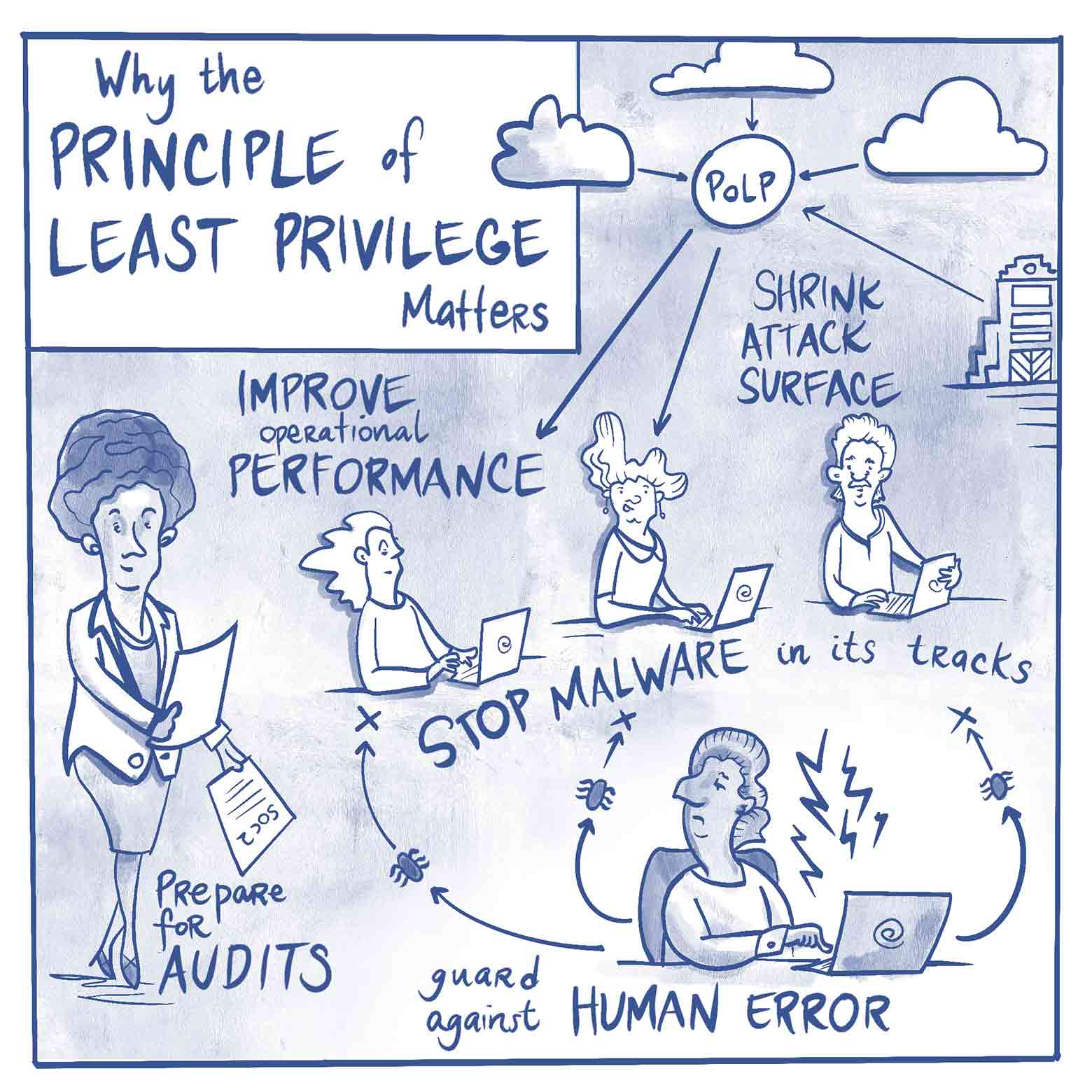
The Principle of Least Privilege (POLP)
POLP states that individuals or systems should only have the minimum access needed to perform their tasks. This limits the risk of unauthorized access and misuse by reducing potential damage from security breaches. For example, an employee who only needs to read data should not have write access. Similarly, systems should not access more resources than necessary. POLP helps increase security by reducing attack surfaces and limiting lateral movement within networks.
Access Controls and Benefits
Access controls restrict or permit access to systems, networks, or data. Their benefits include:
- Security: Prevents unauthorized access, protecting against hacking and malware.
- Compliance: Helps meet regulatory requirements like HIPAA and PCI-DSS.
- Accountability: Tracks who accesses systems, aiding in breach detection.
- Data Protection: Limits access to sensitive data, preventing breaches.
- Improved Performance: Reduces conflicts by limiting access.
- Cost-Effective: Cuts the need for additional security measures.
- Efficient Usage: Ensures only authorized personnel access systems.
Need for IT Audit on Controls
An IT audit examines an organization’s information systems for effectiveness and compliance. Reasons for an IT audit include:
- Compliance: Required by laws like the Sarbanes-Oxley Act for accuracy in financial data.
- Risk Management: Identifies and addresses vulnerabilities to mitigate risks.
- Best Practices: Assesses systems against industry standards like ISO 27001.
- Cost Savings: Finds areas to improve efficiency and cut costs.
- Governance: Aligns technology with business strategy and goals.
- Change Management: Evaluates the impact of changes to technology infrastructure.
- IT Controls: Ensures proper controls to protect data and systems.
Types of Auditors:
- Internal Auditors: Employed by the organization; familiar with systems.
- External Auditors: Independent; provides objective assessments.
- IT Consulting Firms: Offer specialized IT audit services and consulting.
- IT Security Firms: Provide expert security assessments and consulting.
It is important to note that auditors should have appropriate qualifications and certifications such as Certified Information Systems Auditor (CISA), Certified Information Systems Security Professional (CISSP) or Certified in the Governance of Enterprise IT (CGEIT) to conduct an IT audit. Reach us Email: info@michroniaconsultant.co.ke, Call/Text/Whatsapp: 0745 359 397

